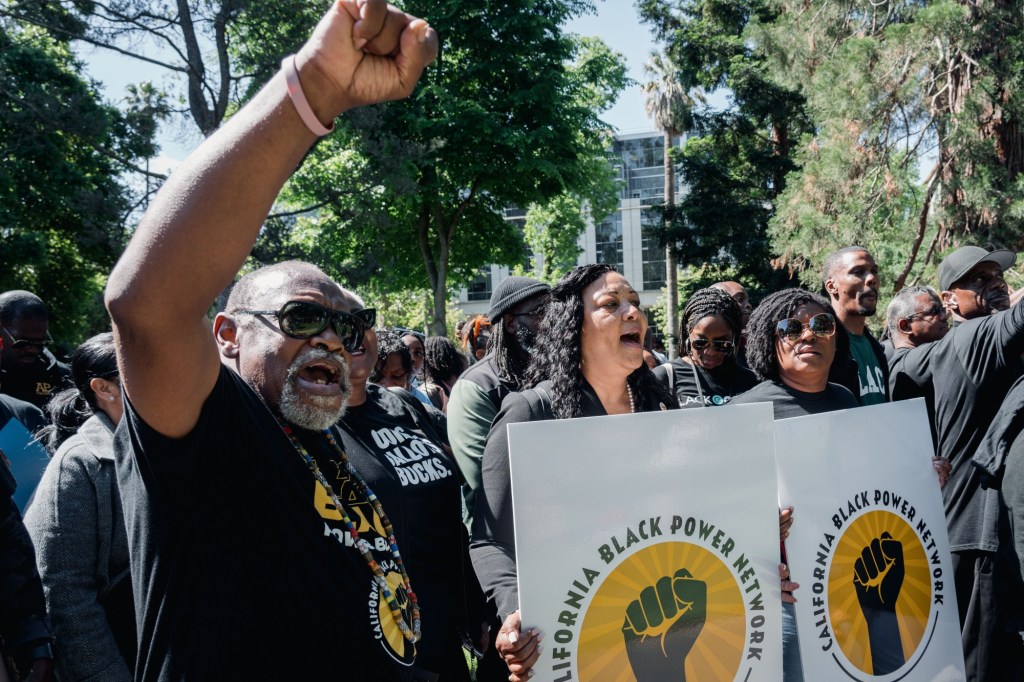
California is once again attempting to lead the nation, this time with respect to reparations for descendants of slaves. Last month, the state Senate passed several bills issuing an apology for California’s contribution to past discrimination and creating an agency to make determinations about eligibility for future cash and housing assistance.
Reparations in a plain sense are very familiar and can be entirely justifiable. If I were to damage your car, I would be liable for the damages and I would be required to pay reparations to you for the harm you suffered.
Reparations for slavery and the many later injustices suffered by black Americans isn’t so straightforward. No black person alive in the US has been enslaved, no one alive has owned slaves, and most people in the US are descended from individuals who migrated to the US after the abolition of slavery.
Reparations should ideally be paid to those who suffered the injustice although they need not be limited to immediate harms and may also include persistent harms to later generations. If I were to steal your house, my responsibility to repay wouldn’t dissolve even in the case that you died. Particularly if you have children who may have benefitted from owning the house after your passing. My responsibility has now transferred to your children and in this case, they have inherited your right to compensation that I denied to you.
Black people in the US, by many metrics like incarceration rates, poverty rates, and life expectancy are doing poorly when compared to other racial groups. These outcomes are at least partially explained by the legacy of slavery and later forms of discrimination.
In effect, black people have suffered injustices, which have resulted in comparatively poor outcomes, and we can help ameliorate with reparations of some sort.
But again, no one alive owned slaves or brought about those harms directly and most of the US population are descendants of immigrants who arrived after abolition so making them pay for reparations appears to be unfairly punishing innocent groups.
Many non-blacks have benefitted from the current wealth that was created by slavery, and that includes descendants of post-abolion migrants. Beyond slavery, many non-black groups have benefited directly from Jim Crow laws and other discriminatory practices. In other words, when a significant portion of the population is excluded from opportunities, the rest of the population benefits from their exclusion – just as if you were trying out for varsity and some of the other kids were automatically excluded from tryouts or made to jump through additional hoops.
This isn’t about assigning blame, it’s about correcting injustice. Just like any other harm performed on anyone, when that harm is brought into existence, the victim deserves compensation. If the government or guilty party fails to give the victim compensation, later generations have the right to inherit reparations independent of but especially if they are currently suffering from similar harms.
Not every current US citizen has benefitted from the legacy of slavery and discrimination, but it’s simply impractical to try to untangle the web of benefit and responsibility.
The government as an entity is the same one who perpetuated slavery. This institution is the entity that is targeted for distributing reparations. Just because the government is composed of different people than the government that supported slavery and Jim Crow, doesn’t mean it’s not the same government or that it’s not responsible.
In this case we would be treating the government as a persisting individual who in their past committed a great harm that they must now pay for.
This isn’t as bizarre as it sounds. If a company took on debt, the company would be responsible for paying that debt even if all of the previous employees were fired and replaced with new ones.
How do you make up for such a persistent injustice? By some estimates, cash reparations could cost as much as $14 trillion, roughly half of US GDP. Monetary payouts of the scale that would not bankrupt our government would do very little to make amends because the harms would not be sufficiently mitigated. The aim would be to make black people at least as well-off if they hadn’t suffered from their unique harms.
California’s proposal appears to be aiming to discharge responsibility with a check.
A reasonably-sized cash payout would do very little to improve the overall circumstances of black Americans. It would have to take the form of an investment into improving our black population’s wellbeing. This includes things like access to quality healthcare, criminal justice, educational opportunities, and affordable housing among others. Essentially, alleviating the negative circumstances that have them lagging behind.
Rafael Perez is a doctoral candidate in philosophy at the University of Rochester. You can reach him at rafaelperezocregister@gmail.com.

